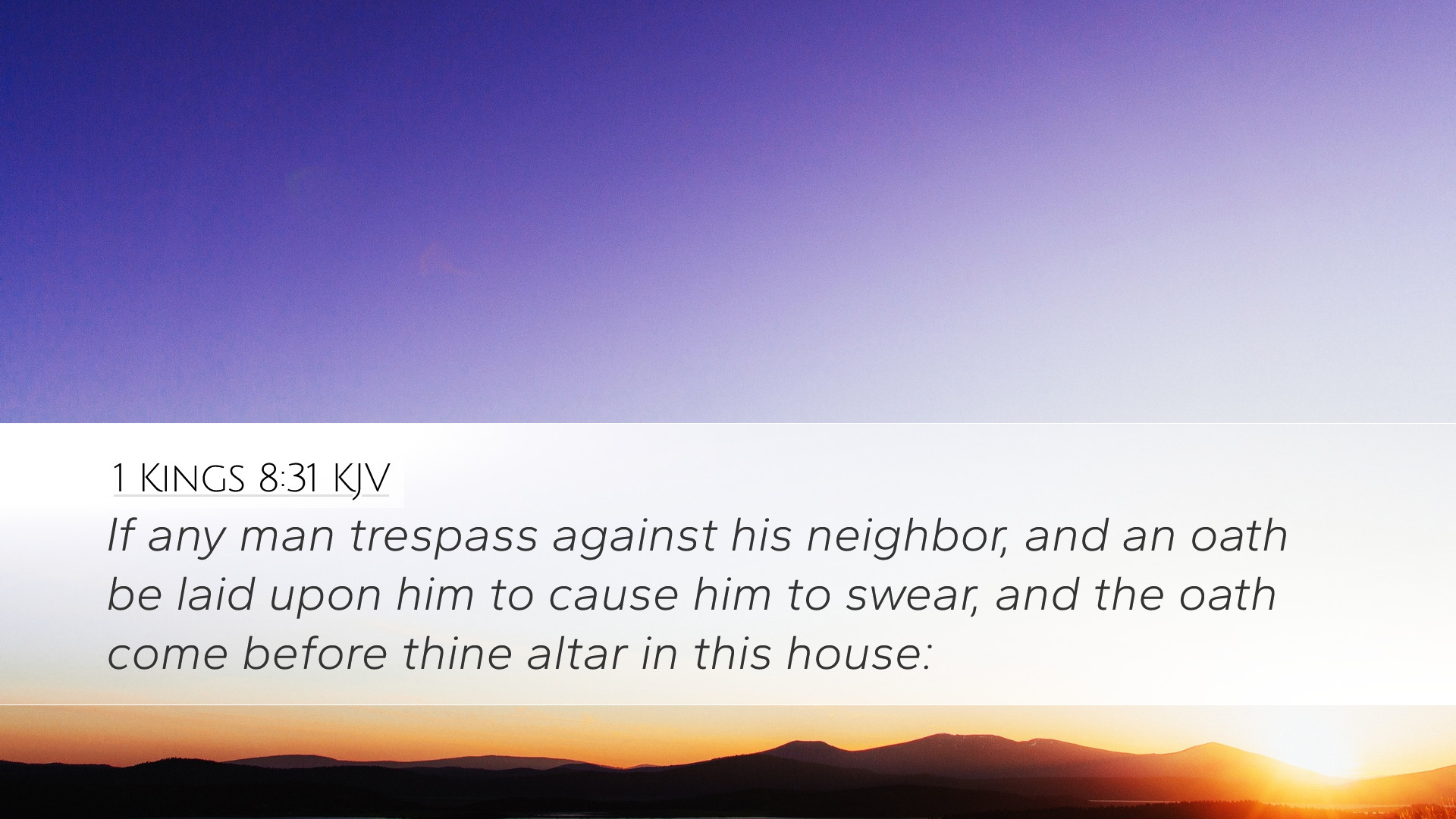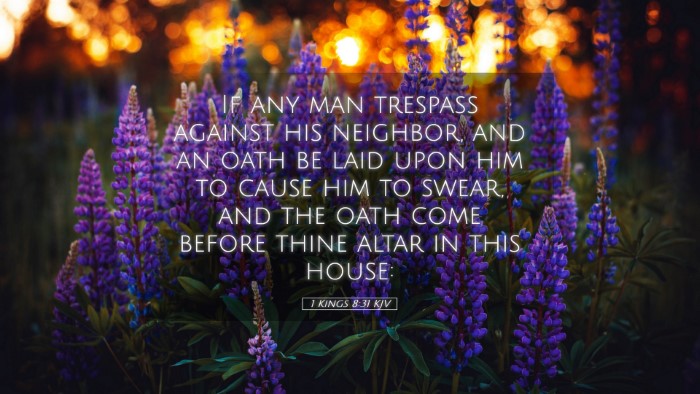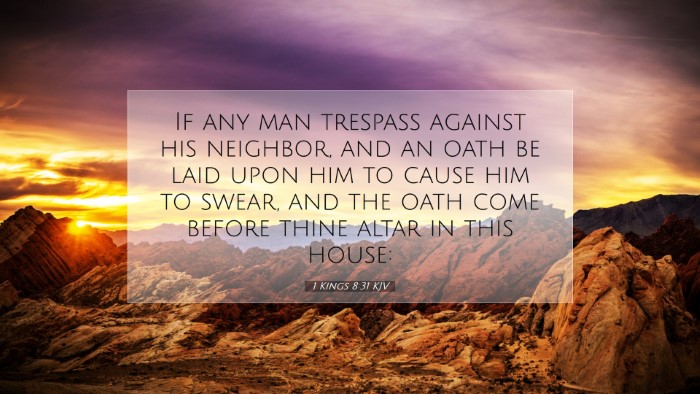Commentary on 1 Kings 8:31
Verse Text: "If any man trespass against his neighbour, and an oath be laid upon him to cause him to swear, and the oath come before thine altar in this house:" (KJV)
Introduction
1 Kings 8:31 comes from the context of Solomon's prayer of dedication for the temple he has built in Jerusalem. The verse addresses the situation of disputes among individuals and the importance of justice, honesty, and divine oversight in resolving these matters.
Historical Context
The dedication ceremony marks a significant moment in Israel's history, highlighting God's presence among His people. The temple represents not only a physical structure but also a spiritual center. Solomon, as the king, embodies the authority to adjudicate between individuals, emphasizing the need for divine guidance in matters of justice.
Thematic Analysis
-
The Necessity of Oaths:
The culture in ancient Israel placed a high value on oaths; they were seen as binding contracts before God. The act of swearing an oath at the temple signifies one's earnestness and the weight of the commitment made.
-
Justice and Equity:
This verse underscores the importance of seeking justice. When an oath is laid upon an individual, it highlights the seriousness of his intentions. The temple serves as a place of truth and restoration.
-
God's Role in Judgments:
The presence of God in the temple is implied in this verse, showing that divine intervention is essential in resolving disputes. It calls for a recognition that human judgments are fallible and that one must appeal to a higher authority for true justice.
Commentary Insights
Matthew Henry's Insights
Matthew Henry emphasizes the weightiness of an oath, particularly when made in a holy place, such as the temple. He notes that the act of swearing in the presence of God should compel individuals to uphold truth and integrity. Henry further discusses that such oaths are not merely societal norms but are binding obligations under the scrutiny of divine law.
Albert Barnes' Interpretation
Albert Barnes provides insights into the procedural aspects of how oaths were administered and the role of witnesses. He stresses the models of accountability that this verse presents, showing that individuals cannot escape the implications of their oaths. Barnes mentions that it is also a part of ecclesiastical law that guides social conduct, reinforcing communal trust and stability.
Adam Clarke’s Reflections
Adam Clarke's commentary reflects on the communal and individual dimensions of oaths. He highlights the need for ethical conduct within the community and links this to the temple's significance as a place for seeking reconciliation. Clarke also notes that the mention of an altar suggests a soothing of personal conflict through divine means, establishing that earthly disputes should be brought to God’s attention for appropriate resolution.
Application for Today’s Believers
This verse has vast implications for contemporary believers. The call to uphold truth in dealings with others remains relevant. As Christians navigate personal and societal conflicts, the principle of inviting God's presence into our oaths and commitments can guide us.
-
Integrity in Declarations:
Believers are encouraged to approach oaths, promises, and declarations with utmost seriousness—recognizing these commitments before God and man.
-
Seeking Divine Guidance in Conflicts:
When facing disputes, believers should be prompted to seek God’s perspective and intervention, ensuring fair dealings and just resolutions.
-
Community and Accountability:
The mutual responsibility in relationships calls Christians to hold each other accountable, fostering a community of truth and support.
Conclusion
The essence of 1 Kings 8:31 resonates with a profound call for justice, integrity, and divine involvement in human affairs. As Solomon dedicates the temple, he not only establishes a physical place for worship but also a spiritual mandate for how disputes ought to be handled among God's people. Readers, from scholars to practitioners of faith, can derive meaningful insights from this verse that inform their understanding of justice in a contemporary context.


